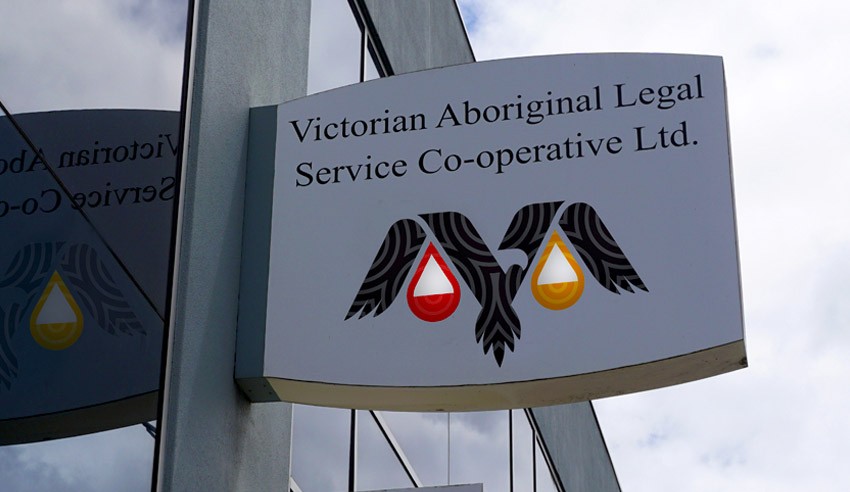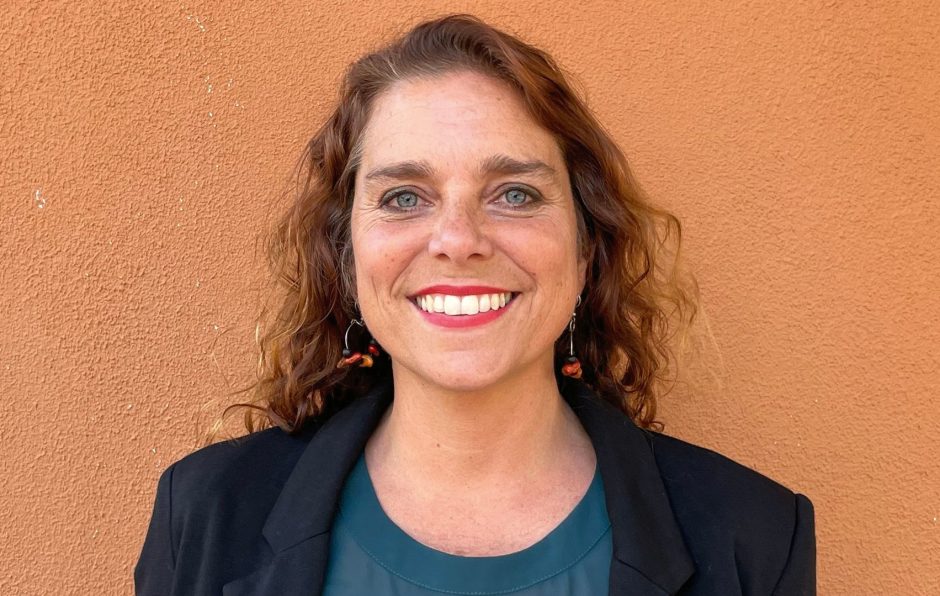There have been active co-ops in Australia’s Aboriginal and Torres Strait Islander communities since the 1950s and 1960s, working to meet their specific needs across a number of sectors.
Education
The co-op sector includes important institutions like the Tranby Aboriginal and Torres Strait Islander College in Sydney. Founded in 1957, the Aboriginal-led co-op is Australia’s oldest indigenous educational provider, offering life changing education for Aboriginal and Torres Strait Islander adults.The college was established by Reverend Alf Clint, who had helped to establish successful Indigenous co-operatives in many communities and had a background in trade unions and left-wing politics.
The courses initially focused on trade-based skills such as bricklaying and baking. This has evolved to follow changing community needs and the broader social position of the Indigenous community in Australia. Since 1998, Tranby has set its own educational agenda, running four VETAB accredited diploma-level courses in Legal Studies, Governance, Applied Aboriginal Studies, and Community Development.
Tranby has historically been a meeting place for social action and has been involved in many of the struggles for social justice and Aboriginal rights over the past 65+ years, including the Black Deaths in Custody and land rights movements – as it sets out in a timeline on its website.
The college draws on its Indigenous heritage, with elders playing a role in shaping its educational programmes as trainers and cultural advisers. Students come from across the country, learning in circular and virtual classrooms designed to make education inclusive.
Its board is more than 51% Aboriginal-led, and its membership also has more than the minimum Supply Nation requirement of 51% Aboriginal and Torres Strait Islander representation.
The college adds: “Following the legacy of Tranby’s first Aboriginal CEO Kevin ‘Cookie’ Cook, our leadership has remained proudly Aboriginal since 1980. This is integral to how Tranby operates, brings value to community, and makes positive change happen.” Current CEO, Dr Belinda Russon, is a descendent of the Yugambeh people.
In Making Change Happen, a history of the college co-written with Heather Goodall, Cook says: “I believe co-operatives are the closest thing to the way we live as Aboriginal people – we are communal owners. The co-operative is set up on those principles that are the principles that Aboriginal people live by. That’s why we thought that the co-operative way, the co-operative principles in small business, is the way that Aboriginal people should go.”
Related: Co-ops could offer economic inclusion to indigenous Australians, says BCCM report
“Our team is diverse and includes both Indigenous and non-Indigenous people, all of whom are passionate about working with and for community,” adds the college. “Our strength as a team, and as a national community, is in working together. This philosophy is emblematic of the Tranby Aboriginal Co-operative Ltd. legacy and is the prominent message on Tranby’s welcome signage. It reminds our community of the value in working collaboratively; black hands and white hands working together, to create meaningful change and inspire lasting community impact.”The college is working hard to develop new projects, establishing a non-accredited women’s leadership programme in 2021 which has since rapidly expanded:
And BLACKBOOKS – bookshop, curated repository of First Nations stories and publisher, which originally operated from 1982 to the mid 1990s, was relaunched in 2022 as a social enterprise with profits going into Aboriginal community-controlled education and community development programmes.
Tranby has also set up Burawa, a national online careers centre that provides resources to Indigenous adults.
Legal
Following Tranby’s lead, co-ops have been set up to meet other needs for Australia’s Indigenous people – including legal services. Set up in 1973, the Victorian Aboriginal Legal Service (VALS) is an Aboriginal community-controlled co-op operating across Victoria state, offering services such as family, civil, and criminal law.
The co-op also has an activist role, with its specialist youth team Balit Ngulu (‘strong voice’) working to promote social justice and reduce the “disproportionate involvement of Aboriginal and Torres Strait Islander youth in the criminal justice and child protection systems”. Balit Ngulu campaigns for the review of “legislation and other practices which discriminate against Aboriginal and Torres Strait Islander youth”.
VALS’ civil rights work is also apparent in its Wirraway Police and Prison Accountability practice, which advocates for the rights of people in prison or in custody. The co-op says Aboriginal and Torres Strait Islander people are “the most over-incarcerated peoples on earth”.

Condemning the 432 Aboriginal deaths in custody since the Royal Commission into Aboriginal Deaths in Custody just over 30 years ago, VALS warns that Aboriginal and Torres Strait Islander people continue to face “racist policing”. It wants legislation to replace the practice of “police investigating police” with independent oversight bodies and external investigations of deaths in custody.
VALS is also campaigning to “end the abuse, torture and solitary confinement of Aboriginal and Torres Strait Islander people in police and prison cells through legislative safeguards and by urgently establishing independent bodies to oversee the conditions of detention and treatment of people”.
New projects include a plan to expand its local office network of Aboriginal Justice Hubs. In May, Victoria state government announced an AU$7.1m (£3.7m) investment in the network over the next two years. In the last year VALS opened new offices in Warrnambool and Bendigo, thanks to state funding.
Nerita Waight, CEO of VALS, said: “It is good to see the Victorian Government investing in Aboriginal legal services in a significant way. Helping our people engage with the legal system must be a prerequisite for the transformational change that is being sought through the Treaty process.
“This funding will mean more VALS offices in communities across Victoria. It will mean there will be more of our lawyers and community support staff to help our people when and where they need it.
“We want to build VALS so that we can support all of our people who want our support. We are not there yet, but this is an important investment to kickstart the expansion of our Aboriginal Justice Hubs.
“I thank the Attorney-General, Jaclyn Symes, for her commitment to helping find this funding for VALS as well her passion for Aboriginal justice issues.”
Healthcare
Set up in 1971, Aboriginal Medical Services (AMS) Redfern is a non-profit which offers culturally appropriate health care, delivered and predominately managed by professional Aboriginal staff.
It sees health as “not just the physical wellbeing of the individual but the social, emotional and cultural wellbeing of the whole community, this is a whole-of-life view and also includes the cyclical concept of life-death-life”, in line with the National Aboriginal Health Strategy.
The first Aboriginal community controlled health service in Australia, AMS Redfern was founded in Sydney and its model has been replicated by communities across the country
Like VALS, it has worked to “overcome the neglect and racism Aboriginal people were experiencing in mainstream health services”.
In 1970, Aboriginal people seeking treatment in public hospitals reported racial discrimination, with cash demanded up front. There was also the problem of a lack of Aboriginal doctors, “directly due to the systematic, historic exclusion of Kooris from the educational system throughout Australia”.
Launched in response to this, AMS Redfern was initially staffed by volunteers and faced a long battle for government funding and support. But it succeeded in not just offering healthcare but also developing related programmes, including a comprehensive nutrition programme, such as a children’s breakfast scheme taken over and developed by Koori women at the Murawina Aboriginal Women and Children Centre.
In its most recent annual report, AMS Redfern – which remained open through the Covid-19 pandemic – set out its five year strategic plan for 2022-27, which aims to develop programmes and deliver health services to “meet the community’s health needs through fortifying self-determination, listening to our patients’ needs, focusing on delivering patient-centred care and understanding our healing”.
The co-op is currently expanding its site to “include more primary, specialist and allied health services to facilitate multidisciplinary care with a patient-centred approach”.
Empowerment
A more recent addition to the Indigenous co-op family is Original Power. Launched in 2018, it works to build the collective power of Aboriginal and Torres Strait Islander communities – including in a literal sense, with a range of clean energy projects.
The co-op says its mission is “to build the power, skills, capacity and collective capability of our people to self determine what happens in our communities and in our country”.
This work follows three strands: Providing training, mentoring and support to build people’s capacity and agency; providing communities with the strategy, advice, skills and connection to resources they need to carry out effective campaigns for change; and providing research, analysis and resources so communities can “turn ideas into reality” and make “informed decisions that take into account long-term community needs as well as country and culture”.
Priority areas include protecting the land from mineral exploitation. “We are not prepared to see our lands and waters defined by their potential mineral value or the boundaries of our nations reduced to a gas reserve, a shale basin, a coal deposit,” it says.
To that end it works with a number of partners, organisations and communities.
“We need to rebuild our power by respecting our elders, building our young mob, bringing our communities together, and strengthening our connection to country and culture,” it adds. “We need to decide which projects we give consent to and ensure they are owned by and benefit our communities now and into the future.”

To increase self-determination among its diverse communities, it has devised a framework to help them “build the capacity to decide whether to challenge a project or consent to one – whether that be a fossil fuel development or a community owned renewable energy project, or a climate adaptation solution”.
Original Power is a key initiator of the First Nations Clean Energy Network, and works on solar demonstration projects in the Northern Territory. Launched in November 2021, the Network is designed to ensure the carbon transition “occurs in partnership with our communities, sharing its jobs and economic benefits, protecting sacred sites and respecting native title”.
The Network will help First Nations communities and business enterprises to manage clean energy projects, from small community projects to large-scale, export focussed initiatives.
Karrina Nolan, executive director of Original Power, said: “The Network will ensure First Nations people are key players in Australia’s clean energy revolution […] We’ll provide the networks, training and resources so we sit powerfully at the table and negotiate just benefits for our communities, while helping to address climate change.”